Search
 Video
Video
A Wake-Up Call on Restless Leg Syndrome: Common, Life-Affecting and Treatable
Neurologist and sleep medicine specialist Liza Ashbrook, MD, presents a quick, thorough lesson on RLS Video
Video
A Primer on Pain: Assessing the Shoulder
Orthopedic surgeon C. Benjamin Ma, MD, demos a thorough shoulder exam, covering palpation points; how much pressure to use; and hallmarks of common injuries, such as rotator cuff tears and SLAP lesions. Video
Video
Approaches to Hematologic Cancers
Jeffrey Wolf, MD, director of the Myeloma Program at UCSF Health, discusses the traditional approaches to hematologic cancers. Video
Video
Hypertrophic Cardiomyopathy: Mostly Benign, Sometimes Lethal
Theodore Abraham, MD, discusses hypertrophic cardiomyopathy, a common inherited heart disease that is usually benign, but can be fatal in up to 10 percent of cases.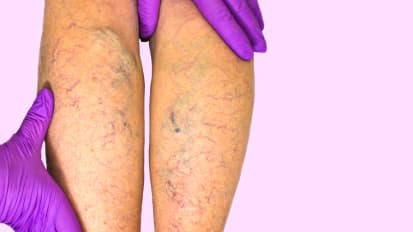 Video
Video
Chronic Venous Insufficiency: Caring for a Common and Disabling Condition
Proper classification and appropriate treatment of CVI will relieve pain and improve quality of life. Interventional radiologist Alexander Lam, MD, presents current guidelines and therapeutic options. Video
Video
Current Menopause Care: Understanding and Explaining a Patient’s Options
Gynecologist Mindy Goldman, MD, offers keys to individualizing care in menopause and beyond by looking at factors ranging from family history to having undergone hysterectomy. Video
Video
Contraceptive Counseling: Simple Techniques for Complicated Patients
With rates of both chronic illness and maternal mortality rising in the U.S., reproductive planning is an essential part of primary care. Offering a variety of approaches to these discussions, OB-GYN Tania Basu Serna, MD, MPH, breaks down contraceptive options and explains how to help individuals make the best choices for their lives. Video
Video
Gender-Affirming Health Care
Addressing the needs of gender-expansive patients is basic health care, yet many PCPs aren’t sure where to begin. Video
Video
A Common Threat to Life and Limb: Detect and Manage Peripheral Artery Disease
Michael S. Conte, MD, UCSF’s chief of vascular surgery, discusses the growing problem of PAD, subtleties of PAD signs, useful testing techniques, which patients to treat, therapeutic options, and how to educate your patients – especially diabetics – to safeguard their health.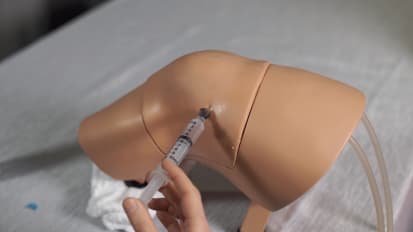 Video
Video
How to Do a Knee Injection
Carlin Senter, MD, and Elizabeth Marshall, MD, discuss how to properly perform a knee injection, focusing on the supplies needed and the proper anatomic landmarks, including a discussion of both the anterior and lateral joint lines approaches for injection.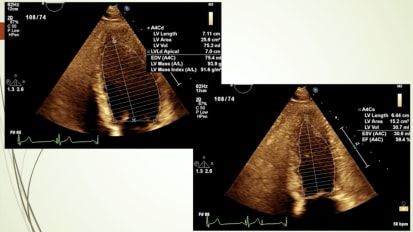 Video
Video
Introduction to Strain Imaging Echocardiography
Clifton Watt, MD, explains that echocardiography is one of the most common noninvasive tools used in cardiology to date, while strain imaging is a supplementary way to assess myocardial function. Video
Video
Understanding Obesity: Essentials of Screening and Management in Primary Care
Weight management specialist Diana Thiara, MD, presents an update on obesity care, with guidance on using screening tools, having sensitive discussions, and selecting treatments – from dietary modifications to surgery. Video
Video
Hope on the Horizon: Specialists Reveal New Approaches to Deadly Malignancies
Here’s an exciting look at recent improvements in our understanding and management of certain malignancies normally associated with a poor prognosis. Video
Video
Everyday Heart Disease Prevention: An Update on Risk Assessment and Clinical Strategies
With heart disease deaths on the upswing since 2010, primary care providers must routinely develop individualized plans to protect their patients from atherosclerosis. Video
Video
Dry Days Ahead: Effective Strategies for Common Urinary Complaints
While stress incontinence and overactive bladder may not be life-threatening, they can be life-diminishing. Yet, with the stepped care approach presented by urologic surgeon Anne M. Suskind, MD, MS, FACS, clinicians can find a remedy to help almost any patient. Video
Video
Managing Patients With Pelvic Fracture Urethral Injuries: From Stabilization to Repair
UCSF Urologist Lindsay A. Hampson, MD, a specialist in genitourinary reconstruction and male incontinence, presents current guidelines on optimal care of urethral injuries.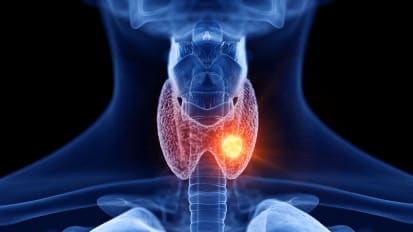 Video
Video
Incidental Thyroid Nodules: Benign Bump or Big Deal?
A lump on the thyroid is a common finding in both physical exams and imaging studies, but the significance varies greatly.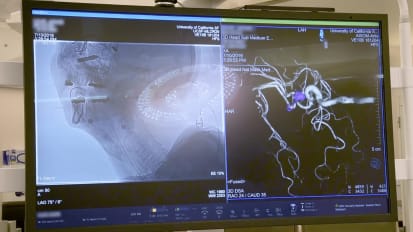 Video
Video
Treating Brain Aneurysms: How a Savvy Neurosurgical Team Individualizes Care
In this short video, vascular and endovascular surgeon Ethan Winkler, MD, PhD, explains the factors that go into determining the right treatment for different cases involving dangerously bulging blood vessels in the brain. Video
Video
Clearing the Confusion Over Prostate Cancer Screening
Doctors have backed off on routine use of the PSA test, yet prostate cancer remains the second most common fatal cancer in American men. Genitourinary oncologist Matthew R. Cooperberg, MD says that screening shouldn’t stop, it should be smarter Video
Video
Better Cancer Care: Pearls From the Best Studies of 2022
Focusing on blood, breast and lung cancers, our specialists deliver exciting findings from the latest phase III trials. Video
Video
Colon Cancer: New Screening Options and Guidelines
With colon cancer increasingly found in younger patients as well as a leading cause of cancer-related death, Aparajita Singh, MD, MPH, director of the UCSF GI Cancer Prevention Program, offers an important update. Video
Video
Cancer Immunotherapy: Promise and Pitfalls
Oncologist David Oh speaks at the October 2017 Bay Area Breast Cancer Forum about key developments in immunotherapy like immune checkpoint inhibitors and T-cell therapies, plus its use in experimental approaches to breast cancer treatment. Video
Video
Get Current on COVID: Case Trends, Flu Season Strategies and Mask Facts
Pulmonologist Brian Block, MD, provides an analysis that clarifies risk factors, in terms of both patient and hospital status. He also discusses how to manage coming flu-related challenges and offers evidence on masking efficacy for both disease spread and severity. Video
Video
Advances (and Uncertainties) in Oncology: Current and Future Roles of Antibody Drug Conjugates
Focusing on common bladder, lung and breast cancers, three UCSF oncologists describe how antibody drug conjugates (ADCs) are changing the treatment landscape, especially for refractory cases


